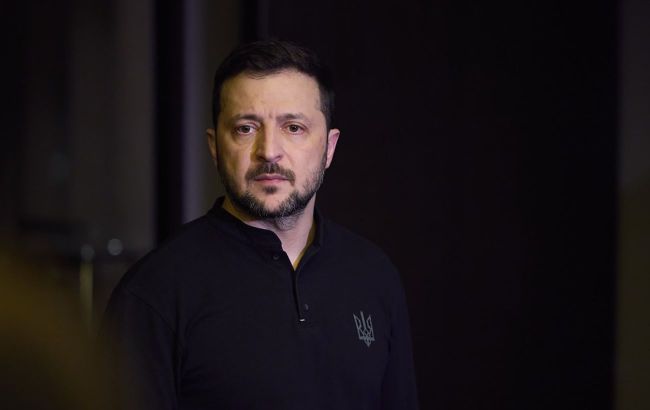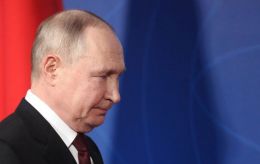Air defense, over €30 billion, and rehabilitation: European Council approves new steps for Ukraine
 Photo: President Volodymyr Zelenskyy (president.gov.ua)
Photo: President Volodymyr Zelenskyy (president.gov.ua)
The European Council and President Volodymyr Zelenskyy exchanged views on the situation in Ukraine, according to the European Council conclusions on Ukraine.
"Recalling its previous conclusions, the European Council reiterates its support for a comprehensive, just and lasting peace in Ukraine based on the principles of the UN Charter and international law," the document states.
The European Council welcomes all efforts aimed at achieving such a peace, including those led by the United States. The EU and its member states will also continue to support peace efforts, in particular by stepping up their global outreach.
The document was supported by 26 out of 27 EU member states. The only country that did not support it was Hungary.
What the conclusions say
The European Council strongly condemns Russia’s ongoing shelling of civilians and infrastructure. It calls for a full and immediate ceasefire and welcomes Ukraine’s readiness for it. The Council urges Russia to end the war and engage in genuine negotiations. Should this not happen, the EU is ready to increase pressure, including through a new package of sanctions, to further limit Russia’s energy revenues.
The European Council underscores the importance of humanitarian aid and trust-building measures between the parties, including the exchange of prisoners, the release of civilians, and the return of all abducted Ukrainian children and adults who were unlawfully taken to Russia or Belarus.
The Council also reaffirms its full support for Ukraine’s independence, sovereignty, and territorial integrity. It believes that achieving peace requires Ukraine to have a strong army; therefore, the EU will continue to provide comprehensive assistance to Ukraine — politically, financially, economically, humanitarily, militarily, and diplomatically.
The European Council calls on EU member states to step up military support for Ukraine, particularly by providing air defense systems, counter-drone equipment, and large-caliber ammunition. This is necessary for Ukraine to defend its people and territory from Russia’s daily attacks.
The Council also emphasizes the importance of developing Ukraine’s defense industry and strengthening its cooperation with European manufacturers. It highlights the need for the swift implementation of the European Peace Facility decisions and underlines the importance of military support within the G7's Enhanced Resilience and Assistance (ERA) initiative.
To achieve a sustainable peace, Ukraine must receive reliable security guarantees that will help prevent future aggression by Russia.
"The European Union and Member States are ready to contribute to security guarantees, in particular by supporting Ukraine’s ability to deter aggression and defend itself effectively, based on their respective competences and capabilities, in line with international law," the document states.
The EU and its member states commit to assisting in the training and equipping of the Ukrainian Armed Forces for this purpose.
All military assistance and security guarantees will be provided in line with each EU country's security and defense policies and the shared interests of all member states.
Pressure on Russia
The EU, together with its partners, aims to limit Russia’s ability to continue its war. Sanctions remain a key tool, and the European Council has already approved the 17th package, targeting Russia’s energy sector, financial system, and so-called shadow fleet of oil tankers. Leaders are calling for tighter restrictions on such vessels and the adoption of new sanctions to further hinder Russia’s ability to circumvent existing bans.
Russian assets must remain frozen until the country ends the war and compensates for the damage it has caused.
The European Council also condemned the support Russia receives from Iran, Belarus, and North Korea, and called on all countries to cease any assistance that contributes to Russian aggression.
Support for Ukraine
The EU will continue to provide Ukraine with regular and predictable financial support in the long term. In 2025, the European Union will allocate €30.6 billion to Ukraine, of which €3.5 billion has already been disbursed under the Ukraine Facility, and €7 billion under the G7’s Enhanced Resilience and Assistance (ERA) initiative, funded by extraordinary revenues generated from frozen Russian assets.
The EU also remains committed to Ukraine’s recovery and its path toward EU membership. Priorities include demining assistance, psychological support, and the reconstruction of destroyed infrastructure in cooperation with international partners. A conference dedicated to Ukraine’s recovery will be held in Rome in July.
The European Council also stressed the importance of ensuring accountability for war crimes. A significant step forward has been taken with the advancement of efforts to establish a Special Tribunal to investigate the crime of aggression against Ukraine.
"The European Council reiterates the inherent right of Ukraine to choose its own destiny, based on the UN Charter and international law. The European Union remains steadfast in its support for Ukraine’s path towards EU membership," the document states.
The European Council commended Ukraine for its swift progress on reforms despite the ongoing war. Leaders urged both Kyiv and the European Commission to accelerate accession talks and move forward with opening new negotiation chapters once the necessary criteria are met. Notably, the Fundamentals cluster is already ready to be opened.
We previously reported that President Volodymyr Zelenskyy may attend the European Council summit, which will take place in Brussels on June 26–27. Read more about it in our material.

